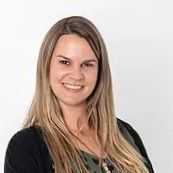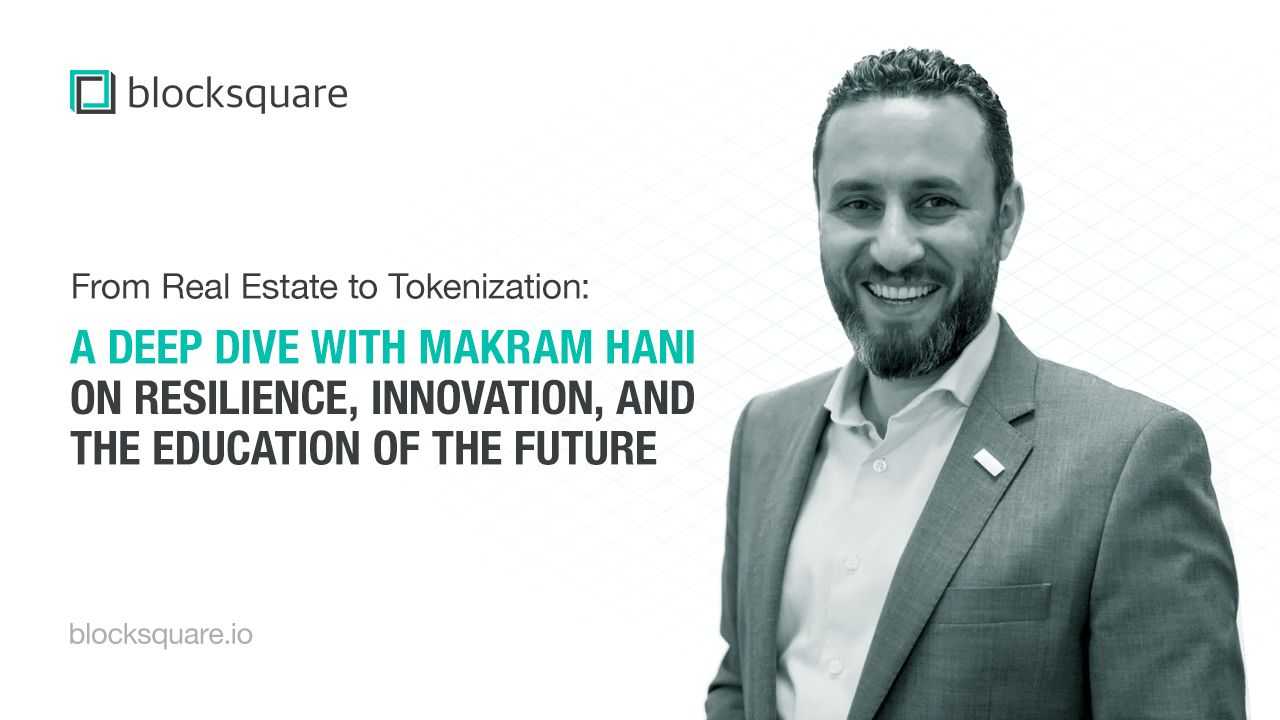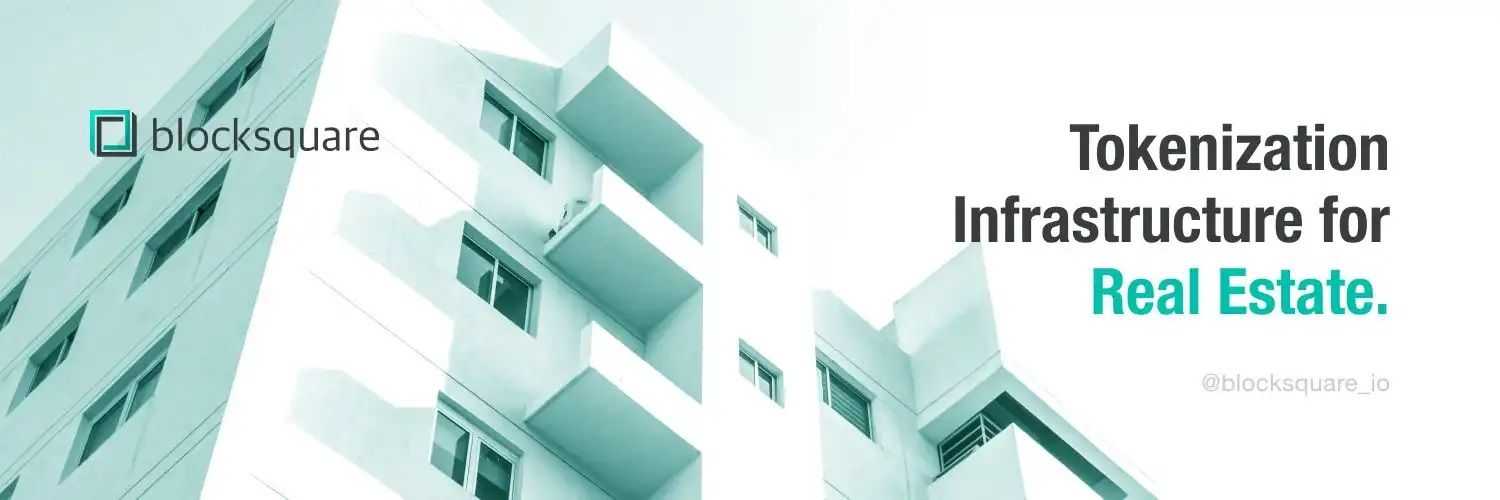From Real Estate to Tokenization: A Deep Dive with Makram Hani on Resilience, Innovation, and the Education of the Future
In Episode 8 of DisruptEd — the podcast by Citizens School that explores the future of education — host Dr. Adil Alzarooni speaks with Makram Hani, CEO of Arms & McGregor International Realty and COO at Blocksquare. Their conversation dives deep into how innovation, failure, and future-facing thinking are reshaping real estate and education alike. From battling outdated systems in childhood to building global investment infrastructure, Makram shares a compelling case for cultivating adaptable, emotionally intelligent minds — not just savvy entrepreneurs.


From Villager to Visionary: A Journey Rooted in Questioning
Makram Hani grew up in the rural mountains of Lebanon—a world defined by community, tradition, and modest living. His parents, especially his mother, valued education deeply; she was a teacher who believed in structure. Makram, by contrast, found rigid systems suffocating. As a child, he regularly questioned teachers, rebelled against rote rote memorization, and dismissed tests he felt missed the point. That early discomfort, paradoxically, forged his strongest trait: independence of thought.
A mentor from his village, seeing potential in his restless spirit, advised him to leave Lebanon and head to Dubai. With little capital but keen ambition, Makram arrived in the city that would offer both opportunity and friction. There, he entered the world of private residence clubs—a niche hybrid of timeshare and luxury membership real estate. This fringe sector became a real-world classroom, where listening, persuasion, emotional connection, and structural selling would become his tools.
Over this period, he learned two critical lessons: persuasion is learnable, and systems outperform charm. He witnessed top closers fail spectacularly when structure was absent—revealing that charisma without discipline is unsustainable.
Structure Over Talent: How Sales Became Science
At Marriott’s Vacation Club International, Makram found himself immersed in a structured sales ecosystem. Unlike typical sales roles reliant on charisma, this environment rewarded precise repetition, behavior tracking, and narrative consistency. Over time, Makram identified the core differences between top-performing teams:
-
Process Mapping: Every step of the client journey—from opening engagement to close—was broken down into teachable units.
-
Behavioral Insights: Emotional arcs, mirroring techniques, anchoring, and value framing were all measured and optimized.
-
Follow-Ups: Automated yet personalized communication paths tracked client responses and enabled scalable nurture.
These insights formed the spine of Makram’s first book, Facilitating Purchases. The book offers a systematic approach to selling rooted in cognitive psychology—not pressure tactics. It includes sections on storytelling arcs, handling objections rationally, and designing scripts that feel human while converting consistently.
From this foundation, he created YUPA (Your Unique Power Act)—a method that uses simple daily rituals to shift emotional states before high-stakes work. He describes YUPA as emotional calibration: exhale distractions, inhale focus. These micro-shifts, he argues, determine macro-results.
Makram insists these lessons aren’t optional—they’re urgent: future generations need emotional literacy taught alongside literacy in math and reading. That’s why he believes children should learn behavioral frameworks early, not as an add-on, but as a central curriculum element.
The Power of Mistakes: Redirection, Resilience, and Reinvention
One of the most powerful themes in Makram’s journey is how mistakes propelled him forward. Early in his career, he was hired to build a sales team. That initiative fell apart suddenly—but instead of stepping away, Makram stepped in. During Eid, he offered to assist existing agents and ended up closing nine property deals in a single day. That impulsive choice transformed his trajectory entirely.
A few years later, the 2008 global financial crisis triggered layoffs across the industry. Makram found himself the exception—a survivor. When the company’s leadership changed, his role was questioned—but his resilience shone through. By 2012, driven by the desire to build something meaningful, he founded Arms & McGregor International Realty—a company intended not just to transact property, but to rethink how property could be owned, invested in, and managed.
This era of his life reinforced a critical truth: failure isn’t a dead end—it’s feedback. But only if you choose to iterate. Makram used each setback as an opportunity to rebuild stronger—and with clearer intention.
Scaling Through People: The “Manufacturing Partners” Model
Makram’s vision of scaling is deeply human. Rather than employ talent and risk losing them, he created a unique partnership model—“manufacturing partners”. When high-performing agents wanted to launch independent brands, he provided support infrastructure—legal, operational, branding—in exchange for equity and alignment.
Over time, multiple spin-out companies emerged under this model—autonomous ventures aligned with shared values. Some partners returned after a few years out on their own, eager to rejoin this ecosystem. Others went on to launch something entirely different—still rooted in the same philosophy.
In Makram’s words: “I don’t lose my best people. I empower them to be founders.” This model embeds long-term loyalty, shared vision, and entrepreneurial culture into every layer of the company.
Real Estate 6.0: Tokenizing Property Ownership and Liquidity
Perhaps Makram’s most ambitious initiative is his vision for Real Estate 6.0—a fully tokenized, liquid, transparent ecosystem for property investment. His moment of insight came one evening when carrying his infant son: “I can buy fractional shares in a tech company in minutes—but owning a slice of my neighbor’s apartment? Practically impossible.”
This led to a multi-layered architecture:
-
Token Layer: Each asset is represented in smart-contract-based tokens (ERC‑20 or similar).
-
Legal Wrapper: Tokens mapped to SPVs or strata titles that reflect legitimate ownership.
-
Secondary Market: Smart-contract protocols enabling peer-to-peer transfer, buyback offers, and trade orders.
-
Data Layer: Real-time asset performance, rental cash flows, maintenance history, and stakeholder communication all on-chain.
As COO at Blocksquare, Makram now builds this globally. Blocksquare’s white-label infrastructure allows real estate companies anywhere to launch compliant marketplaces quickly—without building the backend education or trust systems from scratch.
For investors, this means being able to buy a token for $50 in a high-end Dubai property and trade or earn fractional rental returns—all with the same ease as purchasing a stock, but backed by regulatory clarity and legal title.
Blockchain and the Law: Regulation as Foundation for Trust
Despite his blockchain focus, Makram is not a wild decentralization advocate. He sees regulators as necessary guardians of trust and adoption. In Dubai, institutions like VARA and the Dubai Land Department are pioneering frameworks where tokenized property transactions are not only recorded on-chain but recognized legally.
Makram emphasizes: tokens must point to titles recognized in land registries. Payments need escrow. Platforms must comply with custodial regulations. When these elements are clear, mainstream investors—especially cautious ones—feel safe.
He recalls a pilot in Singapore where a simulated tokenized real estate platform failed to gain traction—not because the tech was flawed, but because legal clarity wasn’t communicated. Once escrow and registry backing were transparently integrated, engagement surged.
For Makram, trust is the invisible infrastructure of blockchain adoption—not complexity. Users will embrace tokenization only when they can feel its security, not when they understand its code.
Reimagining Education: Entrepreneurship, Emotional Intelligence, and Real Ventures
Makram’s final topic—education—is where his ideas converge. He strongly supports the Citizens School model, which teaches venture-building from age four. By Grade 8, students are expected to launch real businesses. This isn’t symbolic—it’s real entrepreneurship, with real customers, pitches, and decisions.
His proposed educational pillars:
-
Safe-to-Fail Culture: Students invest symbolic funds and may lose them—but in controlled contexts.
-
Mentor-First Design: Teachers act less like lecturers and more like guides, prompting questions rather than issuing answers.
-
Emotional Awareness Curriculum: Topics include regulating shame, dealing with failure, and sustaining curiosity.
-
Cross-Disciplinary Projects: Business, design, coding, humanities—integrated in real initiatives.
He cites an example: a Grade 8 team pitching a treehouse park failed their first pitch—but retooled, coached by mentors, and succeeded in round two. To Makram, that kind of resilience is more educative than any exam score.
What he seeks is not well-educated workers, but emotionally resilient creators capable of solving challenges across sectors.
The Next Leap: AI, Quantum Computing, and Hybrid Human-Agent Futures
Looking forward, Makram forecasts a world transformed by AI, blockchain, and quantum computing—but not in a linear way. He sees compound acceleration, where technology rapidly iterates new tools faster than societies can absorb.
-
AI agents will begin generating entirely new businesses, policy models, and architectural systems.
-
Quantum computing could power global real-time valuation of thousands of tokenized properties simultaneously.
-
Combined, this creates generative environments where data, decision, and delivery loops happen at machine speed—and human adaptation must keep up.
He imagines new roles: AI ethics regulators, tokenized asset portfolio designers, and education-technology integrators—humans whose core skills are emotional awareness, cross-sector fluency, and creative resiliency.
“Technology doesn’t replace humans—it redirects human potential,” he says. This philosophy guides his emphasis on adaptive learning habits over rigid expertise.
Writing Legacy: Books, Poetry, and the Meaning Behind Business
Beyond his ventures, Makram writes books—on real estate investing, sales psychology, and even Arabic poetry. He sees writing as part of his legacy. Business gives, poetry reflects.
In his real estate books, he offers structured checklists and investment frameworks. In his poetry, he explores time, purpose, and transformation—questioning assumptions about permanence, value, and attachment.
He often reminds audiences: real estate used to be the ultimate store of value—but global shifts (aging populations, climate migration, digital nomadism) may transform that paradigm. His work isn’t about amassing wealth, but aligning value systems, people, and purpose.
Final Reflections: Mistakes as Mentors, Learning as Legacy
Makram Hani’s story is not linear—it is sculpted by mistakes, pivots, and iteration. From questioning classroom norms in Lebanon to building tokenized property platforms, his path shows that:
-
Resilience matters more than certainty.
-
Ownership culture outlasts control structures.
-
Tokenization succeeds only when anchored in law.
-
Education must evolve faster than disruption.
He closes with a challenge:
“We don’t need more straight‑A students—we need adaptable thinkers who can fail, learn, and build faster than the world changes.”
